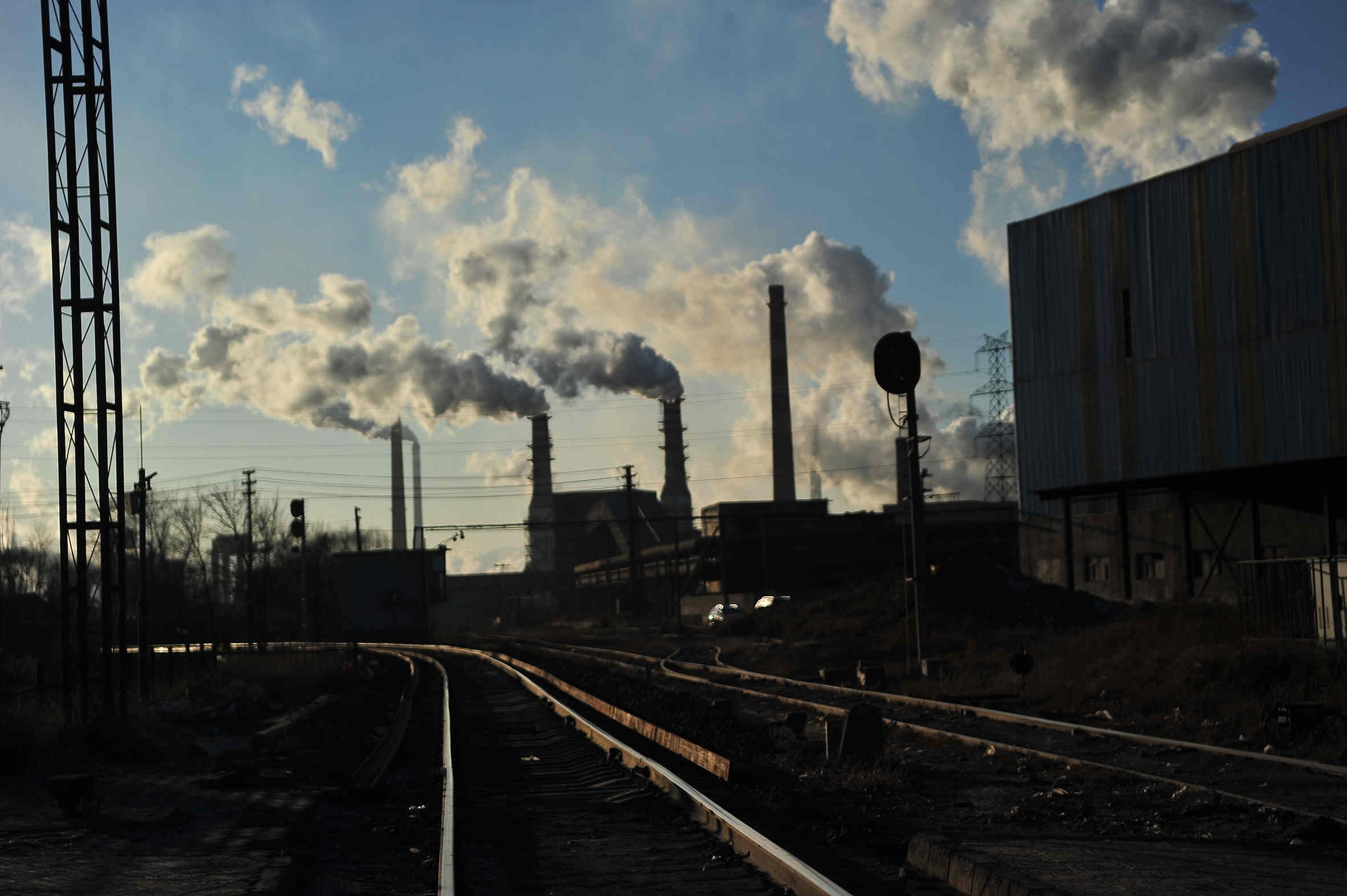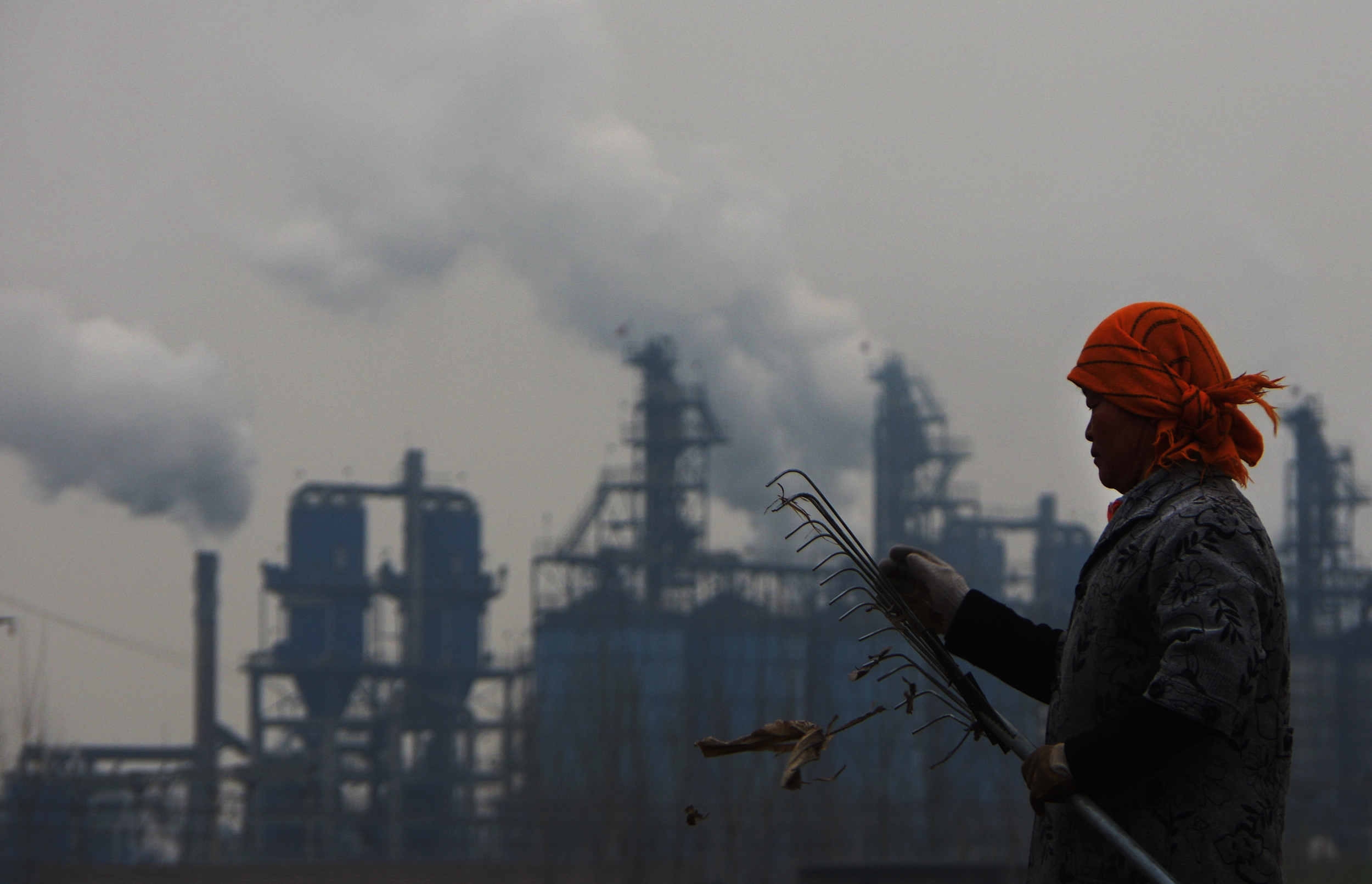Nearly 10,000 companies in the Beijing-Tianjin-Hebei region have violated environmental rules, accounting for about 70 percent of all inspected enterprises in the area, according to China's Ministry of Environmental Protection.
The ministry has been conducting inspections in Beijing, Tianjin and 26 cities in Hebei Province since April 7 this year. As of May 26, more than 14,200 companies had been inspected, of which 9,700 were found to have pollution problems.
The ministry estimates that the total number of companies violating pollution laws may exceed 56,000.

Chimneys emit waste gas in factories in Zhangjiakou, Hebei Province. /VCG Photo
Most of the problematic companies are small-scale businesses scattered in urban areas, where they have a more serious and direct influence on the local environment, said He Kebin, dean of the School of Environment of Tsinghua University and a member of the inspection team.
There is a large stock of such companies in the Beijing-Tianjin-Hebei region, said He.
According to Tian Weiyong, head of the Bureau of Environmental Supervision, those companies usually do not have any pollution abatement facilities, and most of their technological levels are outdated.
Tian said most of the companies meet neither local standards nor their city's planning and layout guidelines, and they benefit no one besides their owners.

A farmer standing in front of a row of chimneys which are emitting waste gas. /VCG Photo
The Ministry of Environmental Protection has tightened its surveillance of polluting companies in recent years. Currently, it requires a daily report on companies identified as problematic.
Tian Weiyong added that the ministry will make a list of those companies, and will require them to eradicate their sources of pollution one by one.
He added that many local officials and governments have not realized the significance of pollution control, which has led to a lack of supervision of environmental protection.
"We are not only enforcing supervision on companies, but on governments as well," said Tian. "It is the local governments that will finally solve the problem of the polluting companies."










